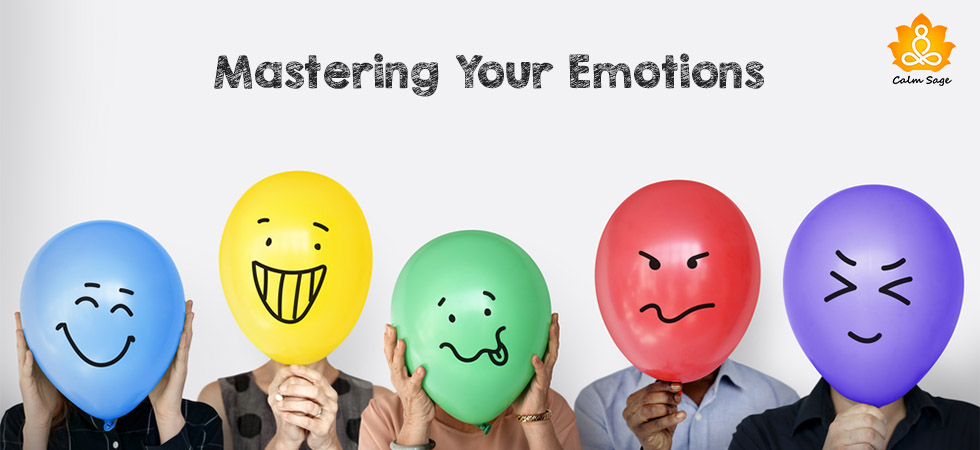 Today, with stress, anxiety, and emotional triggers surrounding us, it has become a skill one needs to learn-to control their emotions.
Today, with stress, anxiety, and emotional triggers surrounding us, it has become a skill one needs to learn-to control their emotions.
Why Control Emotions?
Controlling your emotions refers to not suppressing and ignoring your feelings but developing effective management of them. Once you can control your emotions, then you are:
Efficient in communication and conflict resolution.
Avoid impulsive decisions that you will regret later.
Healthy and fulfilling relationships are promoted.
You are better able to handle stress, anxiety, and anger.
Emotional balance promotes mental and physical well-being.
Recognizing Emotional Triggers
The first technique that you will be using to control your emotions will be by knowing what triggers you. A trigger is the situation, word, or action that makes you react to something in an emotional manner.
Examples of Emotional Triggers:
Negative comments from people
Conflict or an argument
Unmet expectations
Work or personal stress
Feeling rejected or betrayed
After knowing what triggers you, you will be able to work well on controlling your emotional reaction.
Proven Techniques to Control Your Emotions
Here are a few of the best strategies to help you manage your emotions:
1. Practice Mindfulness
Mindfulness means being present and unbiased. By observing thoughts and emotions, you master them. This will reduce emotional reactivity, and you will be able to survive through intense situations.
How to Practice Mindfulness:
Begin with short meditation practice lasting 5-10 minutes daily.
Focus on your breathing and tune into the here-now feeling.
Let thoughts drift by without becoming attached to them.
2. Discover What’s Unresolved
Emotional outbursts often stem from unresolved issues. Rather than reacting in the moment, take time to reflect on, “What is really going on here?” Once you get it inside, you may realize you can respond more constructively.
3. Breathe Deeply
Whenever you have a stressful situation, do deep breathing. Deep breathing calms your heart rate and minimizes the body’s stress response, leading your emotions to calm down also.
Basic Breathing Exercise:
Breathe in through your nose for 4 counts.
Hold for 4 counts
Breathe out slowly through your mouth for 6 counts
Repeat this cycle 3-5 times
4. Delay Your Response
When you’re feeling emotional, don’t act on your emotions automatically, wait and reflect a little bit. The delay may save you from something you will need to regret later, whether it’s something said or done.
Try This:
Wait 10 seconds before acting.
Say to the other person that you need a moment to think about this or that you have to process this.
5. Dispute Negative Thoughts
Often, we react emotionally due to negative or illogical thinking patterns. We can alter your emotional reaction by changing the way you think into a more positive or logical direction.
For example:
Instead of saying, “They don’t appreciate me,” you change it to, “Perhaps they are stressed and not very articulate.”
6. Emotional Boundary Setting
Healthy emotional boundaries allow you to be in control of your emotions by knowing what you will and won’t tolerate. That might even mean boundary setting with people that easily trigger strong emotional reactions.
How to Set Boundaries:
Be assertive but not aggressive.
Know what behaviors affect your emotional well-being and firmly let others know what those limits are.
7. Channel Your Emotions Productively
Sometimes emotions cannot be prevented but can be channeled into a constructive way. Whether it’s in the form of exercise, art, or writing, find a way to get your emotions out.
8. Practice Gratitude
Gratitude helps turn negative emotions positive. The best way to clear your head when feeling overwhelmed with emotions is to take some time to think about what you are thankful for.
Gratitude Exercise:
Write down three things you are thankful for, no matter how small they are every day.
9. Develop Emotional Intelligence
Emotional intelligence is the ability to identify and understand your emotions as well as that of others. A higher EQ enables you to control your emotions well as well as respond to the emotions of others healthily.
How to Build Emotional Intelligence:
Practice active listening to other people while communicating.
Reflect on your emotional reactions to better know and understand them.
Develop an empathetic nature and become able to walk in others’ shoes.
10. Seek Professional Counseling
 To sometimes handle emotions, professional expertise is sought after. If you chronically suffer from emotional overload, stress, or anger, work with a psychologist or counselor to gain insights and hopefully strategies.
To sometimes handle emotions, professional expertise is sought after. If you chronically suffer from emotional overload, stress, or anger, work with a psychologist or counselor to gain insights and hopefully strategies.
At My Mind School, we work with experts who can guide you on how to control emotions and heal in case of emotional trauma, such as Dr. Neha Mehta, India’s top online psychologist.
Conclusion:
This is to mean that you do not have to suppress your feelings, hide, or not express them; it’s about learning how to come to terms with them in a better manner than letting them hold the reins. By understanding what triggers those feelings and helping you cultivate mindfulness and develop emotional intelligence, you will be able to live a far more fulfilling life, with better relationships and less stress, and a more largely felt sense of being in control.
Mastering your emotions is not an easy process; however, if you are persistent and guided in the right way, it’s absolutely possible. My Mind School is here to guide you step by step, starting with customized programs to expert counseling — whatever you may need to take charge of your emotions and lead a peaceful life.
FAQs:
Q1. Can I totally stop feeling?
No, it is not to suppress emotions but not to let them dictate your moves.
Q2. How long does it take to be the master of emotional control?
It differs from person to person. With the regular practice of these techniques for some weeks or months, you can surely notice improvement.
Q3. What to do if I feel that I am being overwhelmed emotionally at work?
Take a little time, breathe in, and allow yourself a moment to think before you answer. You can also write down your feelings so that you ventilate the buildup of emotions.
Q4. Does emotional control help me improve my relationships?
Yes. Emotional control improves communication, minimizes conflicts, and thus helps in healthier relationships.
Q5. Will I need professional help to control my emotions?
In case you fail to cope up with the flooding of emotions, and if you require professional help from a therapist or counselor, your well-being will be amazingly served. My Mind School presents expert guidance on a stepped way for you to regain the balance of your emotion.
read more:-https://geschafty.de/














